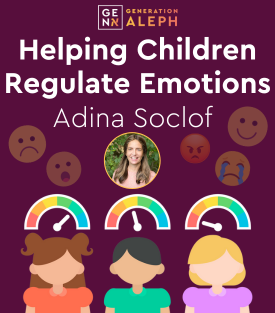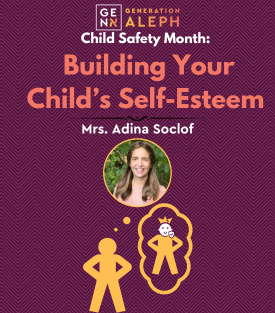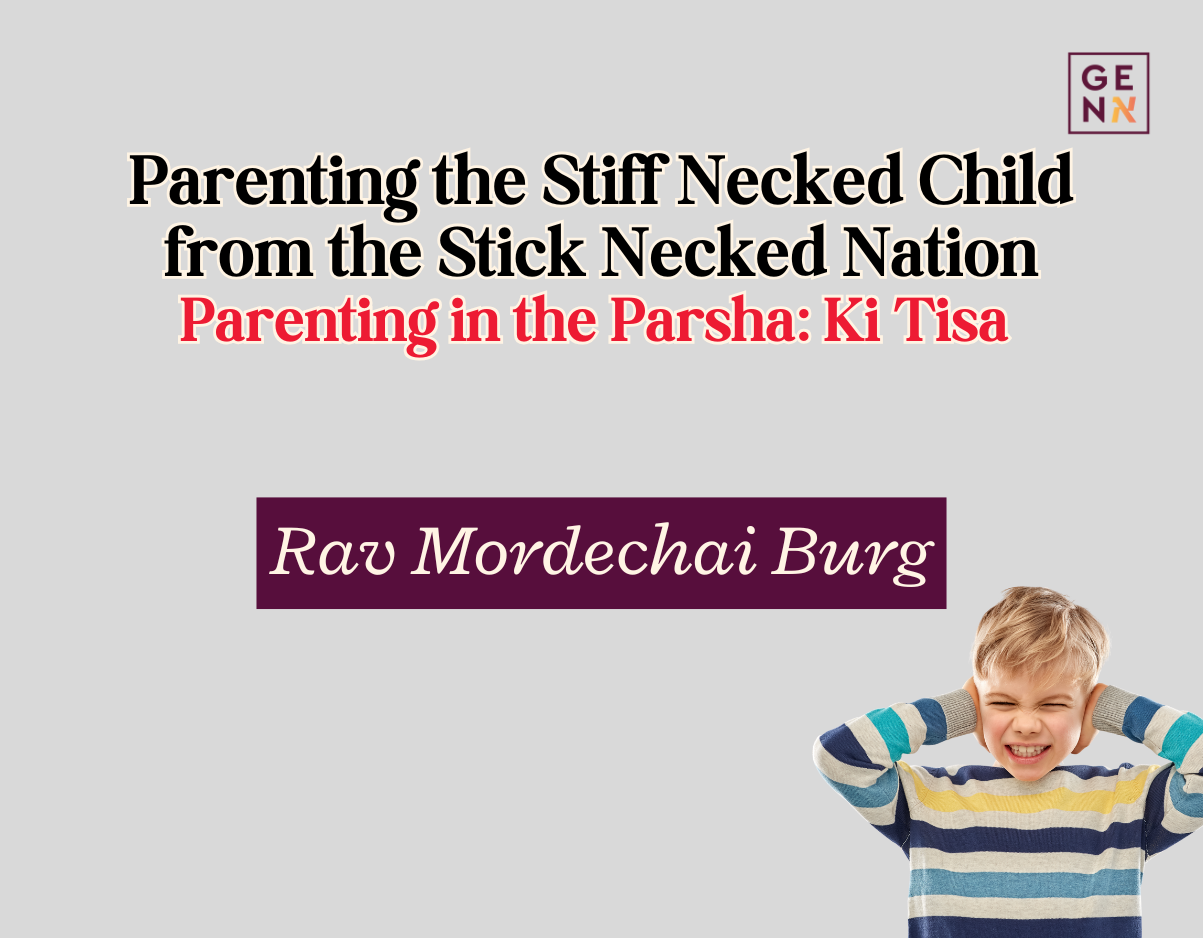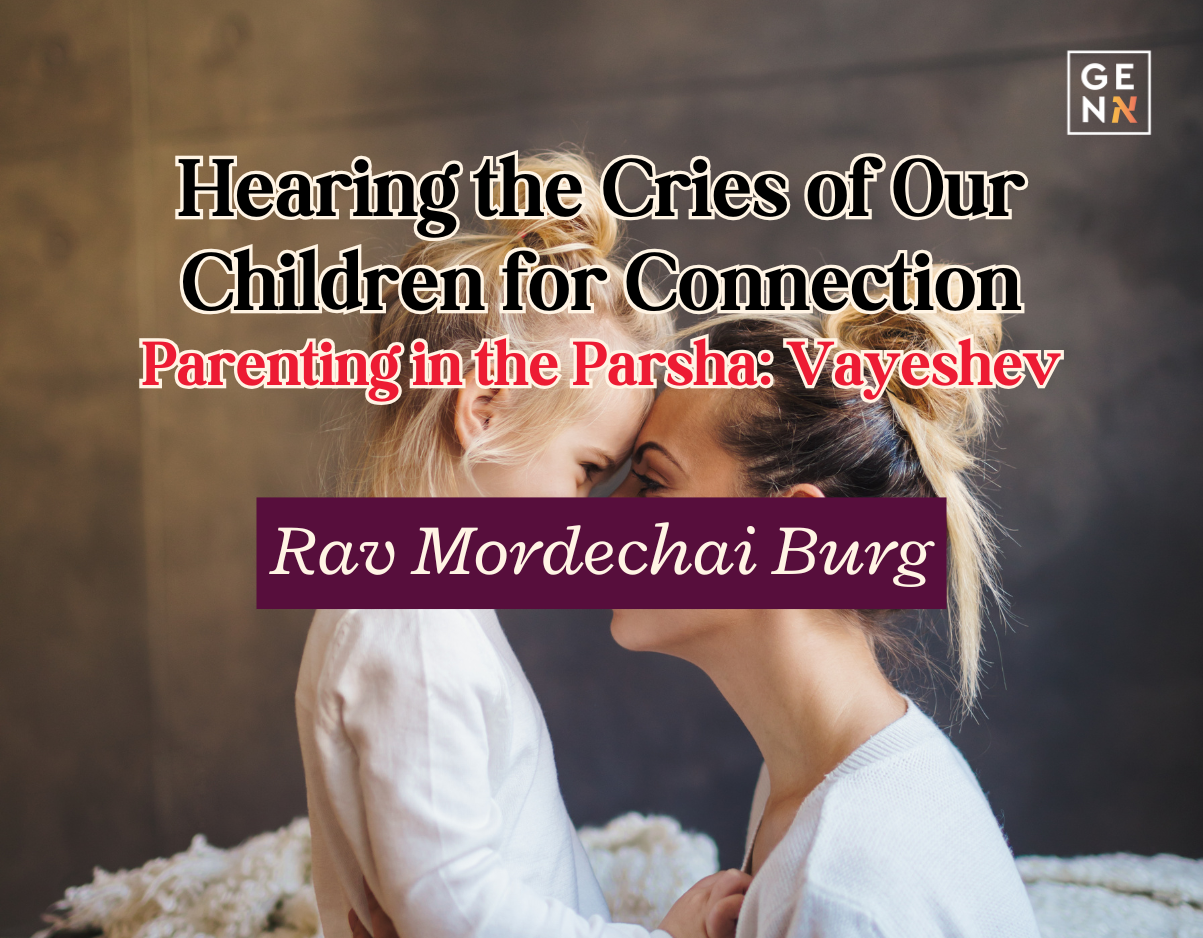וַיֹּֽאמְר֞וּ אִ֣ישׁ אֶל־אָחִ֗יו אֲבָל֘ אֲשֵׁמִ֣ים | אֲנַ֘חְנוּ֘ עַל־אָחִ֒ינוּ֒ אֲשֶׁ֨ר רָאִ֜ינוּ צָרַ֥ת נַפְשׁ֛וֹ בְּהִתְחַֽנְנ֥וֹ אֵלֵ֖ינוּ וְלֹ֣א שָׁמָ֑עְנוּ עַל־כֵּן֙ בָּ֣אָה אֵלֵ֔ינוּ הַצָּרָ֖ה הַזֹּֽאת:
And they said to one another, “Indeed, we are guilty for our brother, that we witnessed the distress of his soul when he begged us, and we did not listen. That is why this trouble has come upon us.” (Bereishis 42:21)
Several weeks from now we will sing Parshas Miketz. The Shevatim have gone down to Mitzrayim and are accused by Yosef of being spies. Yosef demands that they bring Binyamin to Mitzrayim. Recognizing that something unusual is going on the brothers realize that they are suffering the consequences for selling Yosef into slavery. They say, “we witnessed the distress of his soul when he begged us, and we did not listen.” As they should, the Shevatim see these events as a function of Divine Providence and look inwards to discover the root cause of these developments. There is only one problem – nowhere in the previous Parshios do we see that Yosef begged his brothers and they did not listen to his cries. When did the Shevatim witness the distress of Yosef HaTzaddik? Our natural response is to imagine that Yosef was begging for his life when thrown into the pit and the brothers turned a deaf ear to his pleas but there is one glaring problem with this approach. This would seem to be a very important aspect of the story. Something that the Torah should spell out explicitly and not just as an allusion. Yet, we see no mention of Yosef crying out to his brothers at all. No mention of the Shevatim turning their back on Yosef HaTzaddik’s distress. We are thus left with our original question; when did Yosef cry out to his brothers? When did they fail to hear his cries?
אֵ֣לֶּה | תֹּֽלְד֣וֹת יַֽעֲקֹ֗ב יוֹסֵ֞ף בֶּן־שְׁבַע־עֶשְׂרֵ֤ה שָׁנָה֙ הָיָ֨ה רֹעֶ֤ה אֶת־אֶחָיו֙ בַּצֹּ֔אן וְה֣וּא נַ֗עַר אֶת־בְּנֵ֥י בִלְהָ֛ה וְאֶת־בְּנֵ֥י זִלְפָּ֖ה נְשֵׁ֣י אָבִ֑יו וַיָּבֵ֥א יוֹסֵ֛ף אֶת־דִּבָּתָ֥ם רָעָ֖ה אֶל־אֲבִיהֶֽם: וְיִשְׂרָאֵ֗ל אָהַ֤ב אֶת־יוֹסֵף֙ מִכָּל־בָּנָ֔יו כִּֽי־בֶן־זְקֻנִ֥ים ה֖וּא ל֑וֹ וְעָ֥שָׂה ל֖וֹ כְּתֹ֥נֶת פַּסִּֽים: וַיִּרְא֣וּ אֶחָ֗יו כִּֽי־אֹת֞וֹ אָהַ֤ב אֲבִיהֶם֙ מִכָּל־אֶחָ֔יו וַיִּשְׂנְא֖וּ אֹת֑וֹ וְלֹ֥א יָֽכְל֖וּ דַּבְּר֥וֹ לְשָׁלֹֽם:
These are the generations of Jacob: when Joseph was seventeen years old, being a shepherd, he was with his brothers with the flocks, and he was a lad, [and was] with the sons of Bilhah and with the sons of Zilpah, his father’s wives; and Joseph brought evil tales about them to their father. And Israel loved Joseph more than all his sons, because he was a son of his old age; and he made him a fine woolen coat. And his brothers saw that their father loved him more than all his brothers, so they hated him, and they could not speak with him peacefully. (Bereishis 37:2-4)
There is nothing that frustrates parents more than when their children fight. No parent enjoys when children tattle on each other. Yet here we have Yosef who reports to Yaakov about the wrongdoings of his brothers and Yaakov’s response is to love Yaakov more than any of his other children. Yaakov even goes so far as to give Yosef a special coat as a symbol of his love. It is this very love that causes the brothers to hate Yosef. Why does Yaakov respond in this way? Why does he not chastise Yosef? Why doesn’t he tell him that his behavior is inappropriate and causing division in the family?
To add on one more dimension to this already challenging narrative, the Torah describes Yosef as a נַ֗עַר, a lad. The Torah already told us that Yosef was seventeen years old at the time of this story. What then is the Torah adding? Rashi explains that Yosef was behaving like a child, fixing his hair and touching up his eyes so that he would appear handsome. It is a beautiful explanation of the seemingly extraneous words in the Torah but in what way does it help us understand the story? How is Yosef spending time beautifying himself connected to giving reports to Yaakov about his brothers?
וַיַּֽחֲלֹ֤ם יוֹסֵף֙ חֲל֔וֹם וַיַּגֵּ֖ד לְאֶחָ֑יו וַיּוֹסִ֥פוּ ע֖וֹד שְׂנֹ֥א אֹתֽוֹ:
And Joseph dreamed a dream and told his brothers, and they continued to hate him. (Bereishis 37:5)
Dreams are an expression of our inner world. They tell us about our hopes and aspirations for the future. Sharing our dreams with others takes courage. One dismissive word, one negative reaction, even the slightest eyebrow raise has the potential to squelch our excitement. Generally speaking, we only share with people who have gained our trust. Yet, Yosef HaTzaddik does the exact opposite. Just one Passuk earlier, the Torah tells us that the Shevatim were not able to speak peacefully with Yosef. Surely Yosef was not unaware about how his brothers felt about him. Why then would he share his dreams with them? Especially since in those dreams the Shevatim are prostrating themselves before Yosef? Why not just tell Yaakov? Predictably, the Shevatim hate Yosef for the evil reports he has told to his father and for sharing his dreams with them.
The narrative continues with the Shevatim traveling to Shechem to pasture their flock and Yaakov sending Yosef to bring back word of his brother’s welfare. Along the way, the Torah tells us about a strange encounter:
וַיִּמְצָאֵ֣הוּ אִ֔ישׁ וְהִנֵּ֥ה תֹעֶ֖ה בַּשָּׂדֶ֑ה וַיִּשְׁאָלֵ֧הוּ הָאִ֛ישׁ לֵאמֹ֖ר מַה־תְּבַקֵּֽשׁ: וַיֹּ֕אמֶר אֶת־אַחַ֖י אָֽנֹכִ֣י מְבַקֵּ֑שׁ הַגִּֽידָה־נָּ֣א לִ֔י אֵיפֹ֖ה הֵ֥ם רֹעִֽים: וַיֹּ֤אמֶר הָאִישׁ֙ נָֽסְע֣וּ מִזֶּ֔ה כִּ֤י שָׁמַ֨עְתִּי֙ אֹֽמְרִ֔ים נֵֽלְכָ֖ה דֹּתָ֑יְנָה וַיֵּ֤לֶךְ יוֹסֵף֙ אַחַ֣ר אֶחָ֔יו וַיִּמְצָאֵ֖ם בְּדֹתָֽן:
Then a man found him, and behold, he was straying in the field, and the man asked him, saying, “What are you looking for?” And he said, “I am looking for my brothers. Tell me now, where are they pasturing?” And the man said, “They have traveled away from here, for I overheard them say, ‘Let us go to Dothan.’ ” So Joseph went after his brothers, and he found them in Dothan. (Bereishis 37:15-17)
Again, this seemingly insignificant detail is added to the story. Do we need to know that Yosef could not find his brothers? Does it matter that he met someone along the way who guided him? Had we not known this, we still would have known that eventually made his way to Dothan where his brothers would sell him into slavery. Not one letter in the Torah is extra. What then is the significance of this portion of the narrative?
Playing Charades With Our Children
Parenting children can be thought of as a game of charades. Our children have not yet developed the language to be able to communicate what is happening in their inner world. Everything our children do is a form of communication. What we often label as “behavioral issues” is a child who is trying to let us know that something is going on inside of them. A child who is lacking attachment and connection to their family, may wreak havoc in the house in order to attain some form of connection. As the African proverb goes, “The child who is not embraced by the village will burn it down to feel its warmth.” Punishing such a child may work in the short term to curb a negative behavior but it only distances the child further from the family, exacerbating the problem. Our responsibility is to pay careful attention to our children’s communications and to respond appropriately. If a child is acting out because they feel a lack of connection to their family, the best response is to draw the child closer.
(Important Disclaimer: It goes without saying that we are speaking about the Avos HaKedoshim, people who reached unfathomable levels of connection with Hashem. Whatever is written herein is not meant in any way to denigrate these exceptional Tzaddikim Chas V’shalom. The story of Yosef and his brothers has levels of nuance and subtlety that one can readily see in the Meforshim. For the purposes of this article, we examined the story to extract important Chinuch lessons that the Torah is conveying so that we can raise families that are designed to lead passionate lives of service to Hashem.)
With this Chinuch principle in mind, let us once again examine the story of Yosef and his brothers. Why was Yosef bringing evil reports to his father? Why was he spending his time beautifying himself? This is the behavior of a child who feels disconnected from his family. Yosef brings evil reports to his father not because he hates them but because this is how a child acts when they feel disconnected from his brothers. It is a poor attempt at connection. It is burning down the village to feel its warmth. Sometimes negative attention is better than no attention at all. Yosef does not spend on his hair and makeup because he is a narcissist but because he feels lonely and when we are lonely we often feel the need to turn inward and make ourselves feel better.
Yaakov responds appropriately. He sees the true problem and rather than chastise Yosef and push him farther away, he draws him close by loving Yosef even more. He even gives him a special coat as an expression of his love. He wants Yosef to know how much he is a valued member of the family.
But the Shevatim have a different experience. They see Yosef being loved in a way that they are not. Children will often complain to their parents that things are not fair. “Why does she get a new dress and I have not gotten a new dress in forever?” As parents we respond, “Everyone in this family gets what they need.” What the brothers failed to understand is that Yosef was a child in pain. Yaakov loved every one of his children but Yosef needed something different. Something more. Tragically, the brothers could not see beyond Yosef’s pain. They could not hear the cries behind his behavior.
With this in mind we can now understand why Yosef, even after his brothers cannot speak with him peacefully, shares his dreams with his brothers. What he wants more than anything is to connect with them. Excited with the prophecy he has experienced, he runs to share it with his family. He pays no attention to the fact that in this Nevua he is elevated about the other Shevatim, in his dreams they are one unit, each connected to the other. But again, the brothers don’t see Yosef’s true intentions, only his panful words. And they hate him. One imagines how lonely Yosef must have felt as the Shevatim left him behind and went to Shechem to pasture their flock.
Yaakov sends him to bring word back of his brothers. Perhaps this is Yaakov’s way of trying to create unity in the family. On his way he meets a man. Their encounter tells us everything we need to know about the inner workings of Yosef in that moment. Rashi tells us that this man is none other than the Malach Gavriel. He asks Yosef, what are you looking for? Yosef responds, אֶת־אַחַ֖י אָֽנֹכִ֣י מְבַקֵּ֑שׁ, I am looking for my brothers. Gavriel is enquiring about the true nature of Yosef’s journey. Why are you behaving this way? What are you looking for? And Yosef responds, I am searching for my brothers. He wants, with every fiber of his being, to connect with them. This “chance encounter” is critical to our understanding of the story. It frames for us the deepest desires of Yosef HaTzaddik. All of Yosef’s behaviors are attempts to connect. Tragically, the Shevatim see him as they always have.
וַיִּרְא֥וּ אֹת֖וֹ מֵֽרָחֹ֑ק וּבְטֶ֨רֶם֙ יִקְרַ֣ב אֲלֵיהֶ֔ם וַיִּתְנַכְּל֥וּ אֹת֖וֹ לַֽהֲמִיתֽוֹ:
And they saw him from afar, and when he had not yet drawn near to them, they plotted against him to put him to death. (Bereishis 37:18)
Yosef is the brother that they see from afar. They remain distant, seeing only his external behavior but not hearing the cries of a young man searching to connect with his family. They are deaf to his pain. And eventually they throw Yosef into the pit, surrounded by snakes and scorpions. The Torah does not record Yosef crying out to his brothers to be saved because at this point Yosef is defeated. He has no words to communicate his pain. The brothers he so badly wanted to love him sentenced him to death. Sometimes, there are no tears left to be cried. The pain is so overwhelming that there are no words left to be spoken.In fact, the Torah does not record another word that Yosef says until his encounter with the wife of Potiphar. Of course Yosef must have spoken between his sale and that event. He had risen to power in the house of Potiphar and surely he said many things in that time. It is almost as if the Torah is communicating to us how much pain Yosef was in. From the time he was in the pit until many years later, he had no language to communicate. For all intents and purposes, Yosef is silent, bearing the pain of being sentenced to death by the people he loved most.
Eventually the Shevatim understood their mistake. Faced with the prospect of bringing Binyamin down to Mitzrayim they turn inwards to see where their mistake was. Only then do they realize that they failed to hear Yosef’s cries for connection. The child who played with his hair, who brought evil reports to their father, who shared his dreams with them, he was looking for his brothers.
Golus begins when we fail to hear the cries of our children. Redemption begins when we discover the root cause of the exile. Let’s start with our own families. The child who is driving you up the wall, who brings chaos to the family, who makes everyone crazy, is crying out for connection. That child needs our love. A special role in the family that celebrates their unique mission. If our homes can be places where everyone is valued for who they are, where deep connections are fostered, then we are raising a family that will, with Hashem’s help, share those values with all of Klal Yisrael. And in that Zechus may we merit to see the culmination of this process of redemption.
Submit your questions
"*" indicates required fields











